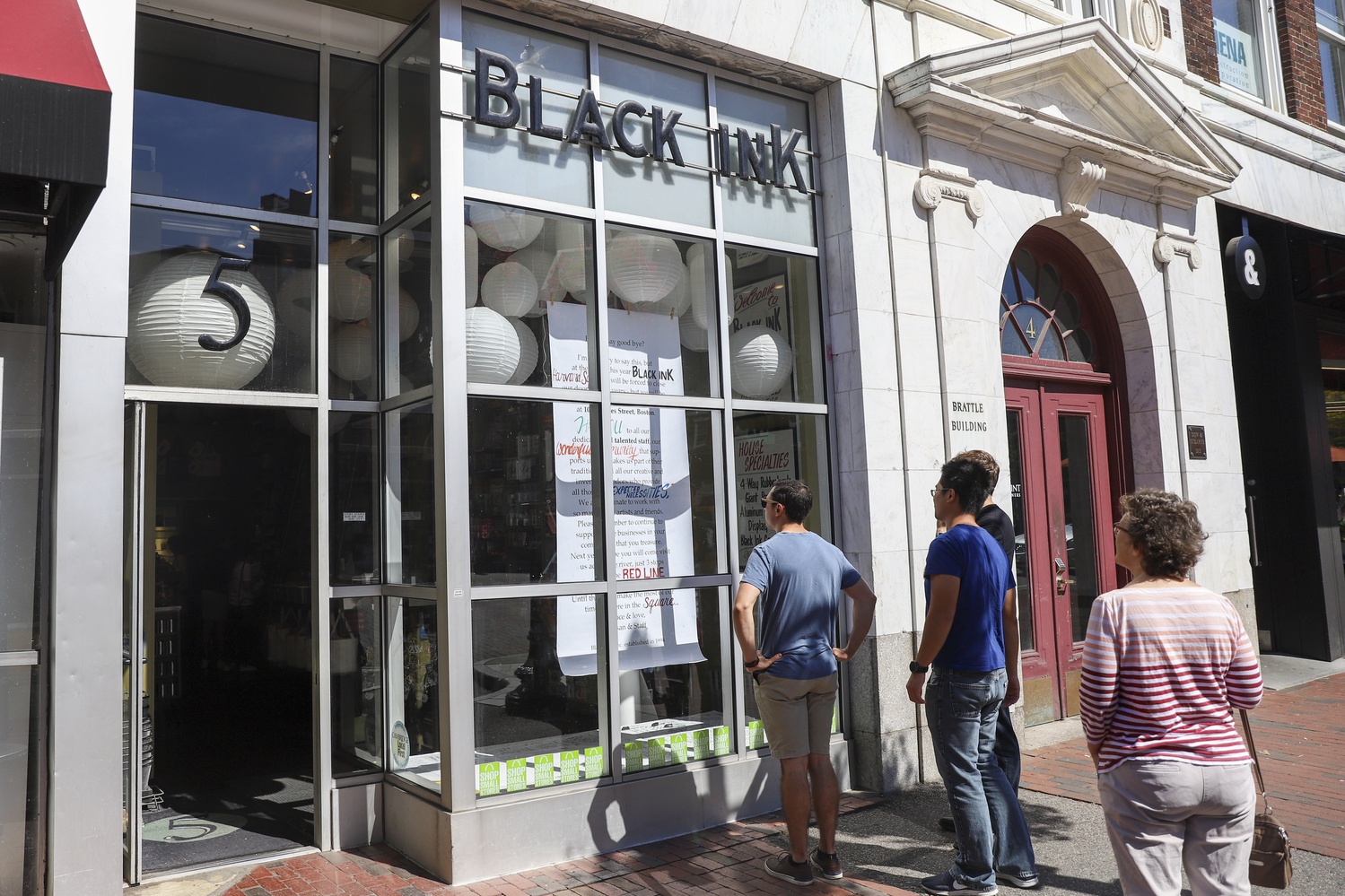
News
Pro-Palestine Encampment Represents First Major Test for Harvard President Alan Garber

News
Israeli PM Benjamin Netanyahu Condemns Antisemitism at U.S. Colleges Amid Encampment at Harvard

News
‘A Joke’: Nikole Hannah-Jones Says Harvard Should Spend More on Legacy of Slavery Initiative

News
Massachusetts ACLU Demands Harvard Reinstate PSC in Letter

News
LIVE UPDATES: Pro-Palestine Protesters Begin Encampment in Harvard Yard
Scratch Black Ink: Cambridge Should Think Bigger
In yet another Harvard Square closure, Black Ink — a high-end stationery purveyor on Brattle Street for almost 20 years — will be departing by the end of the year. Like many other shops whose storefronts are owned by North Carolina-based development company Asana Partners, it can no longer keep up with rising rent prices.
Some Cambridge residents rallied around the store and its owners, writing supportive messages on a piece of paper posted in the window. For those residents, it’s a sad farewell that speaks volumes about the changing face of Harvard Square and Cambridge more broadly — increasingly geared toward the cravings of Harvard students or visitors, and not permanent residents.
But Black Ink itself is a reminder that an affordable Harvard Square is a thing of a very distant past. Low-income Cambridge residents don’t need stationery — though if they do, they can still turn to Staples or even CVS — they need affordable grocery stores.
Harvard Square has long been at the economic mercy of students. A Crimson article from 1985, six years prior to Black Ink’s arrival in Harvard Square, underlines just how many bookstores Harvard had at that time — an astonishing 27. What students are willing to buy has changed — fast-casual Mexican replacing Shakespeare — but the same essential principle applies: Harvard Square gets what Harvard students are willing to buy.
So first, we strongly urge people, students in particular, to support the kind of Harvard Square they hope to inhabit — to vote with their feet and their wallets. It is not sufficient to bemoan the closing of a beloved store, as many often do, having failed for years to visit it at all or often enough to sustain the business. If you want to see more independent and local stores, shop at the ones we still have.
That said, we still view the tactics of Asana Partners, which purchased the properties housing Felipe’s Taqueria, Flat Patties, and Cardullo’s Gourmet Shoppe in 2017 for more than $100 million, with suspicion. Denise A. Jillson, executive director of the Harvard Square Business Association, at the time told The Crimson that Asana Partners had expressed its desire to stay for a long time, and Jillson expressed hope that they would be “engaged and responsible community members.”
One year later, however, Asana Partners decided not to renew the lease of the beloved Crema Cafe, which sat a few storefronts away from Black Ink. Now, Black Ink is leaving because Asana Partners is raising its rent to a level that the store’s founder called “unsustainable.” She further alleged Asana representatives were challenging to contact, forcing her to hire a lawyer. We condemn these business practices, and we implore Asana Partners to demonstrate a meaningful commitment to the community and a proper appreciation for the value of maintaining customer loyalty to locally-owned stores.
Finally, we call upon the Cambridge City Council and other local leaders to make efforts to spark a greater debate about the affordability of the city’s retail. Harvard Square may or may not be a lost cause, but the greater city is still worth fighting for. As the City Council approaches its upcoming election and as it continues to wage an ongoing debate about affordable housing in the city — the subject of a public forum at the Cambridge Public Library on Wednesday — current members and candidates should be thinking critically about the broader socioeconomic challenges of living in this city. It’s not merely a matter of where you live, but how you live, too.
This staff editorial solely represents the majority view of The Crimson Editorial Board. It is the product of discussions at regular Editorial Board meetings. In order to ensure the impartiality of our journalism, Crimson editors who choose to opine and vote at these meetings are not involved in the reporting of articles on similar topics.
Want to keep up with breaking news? Subscribe to our email newsletter.

